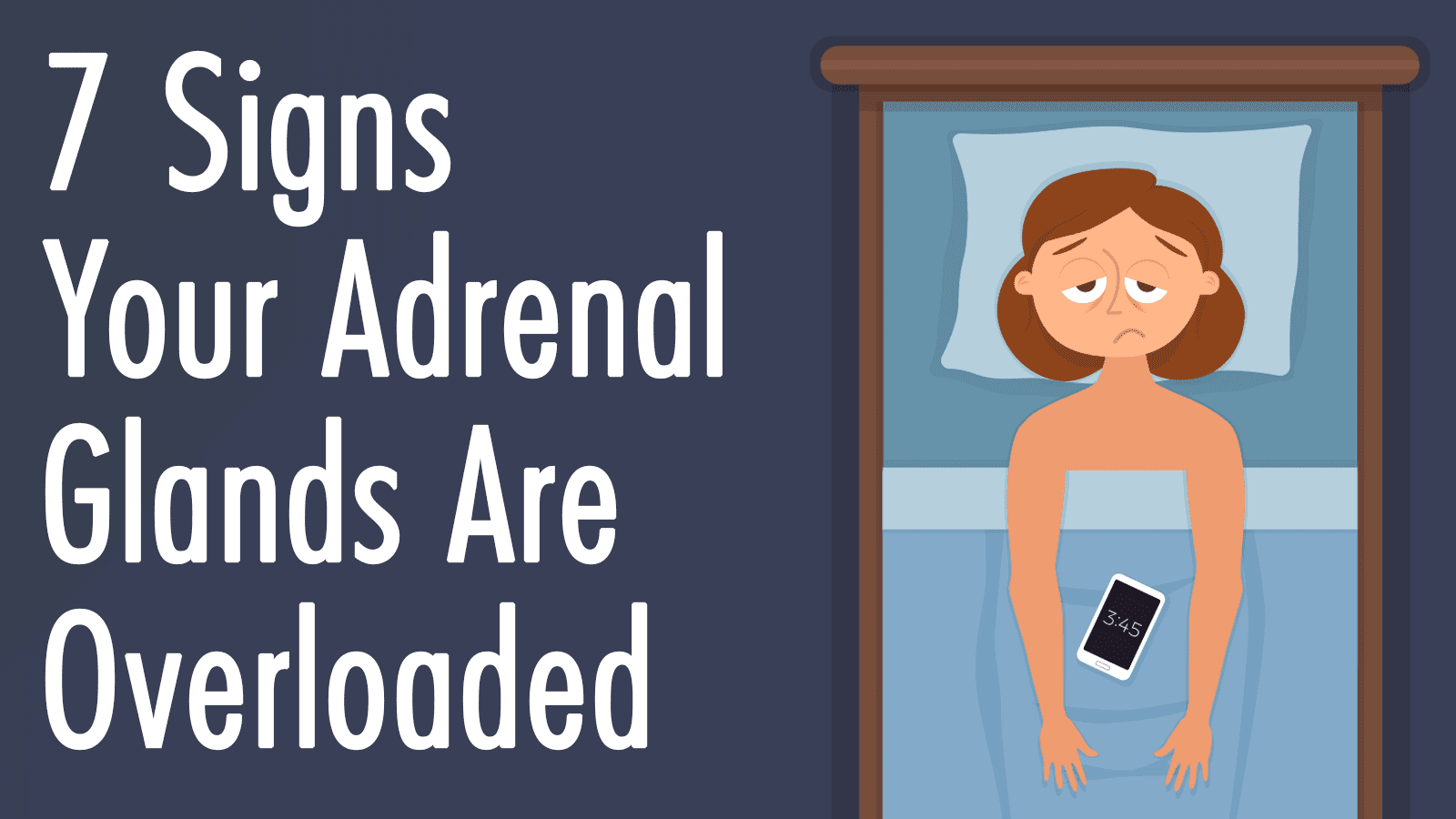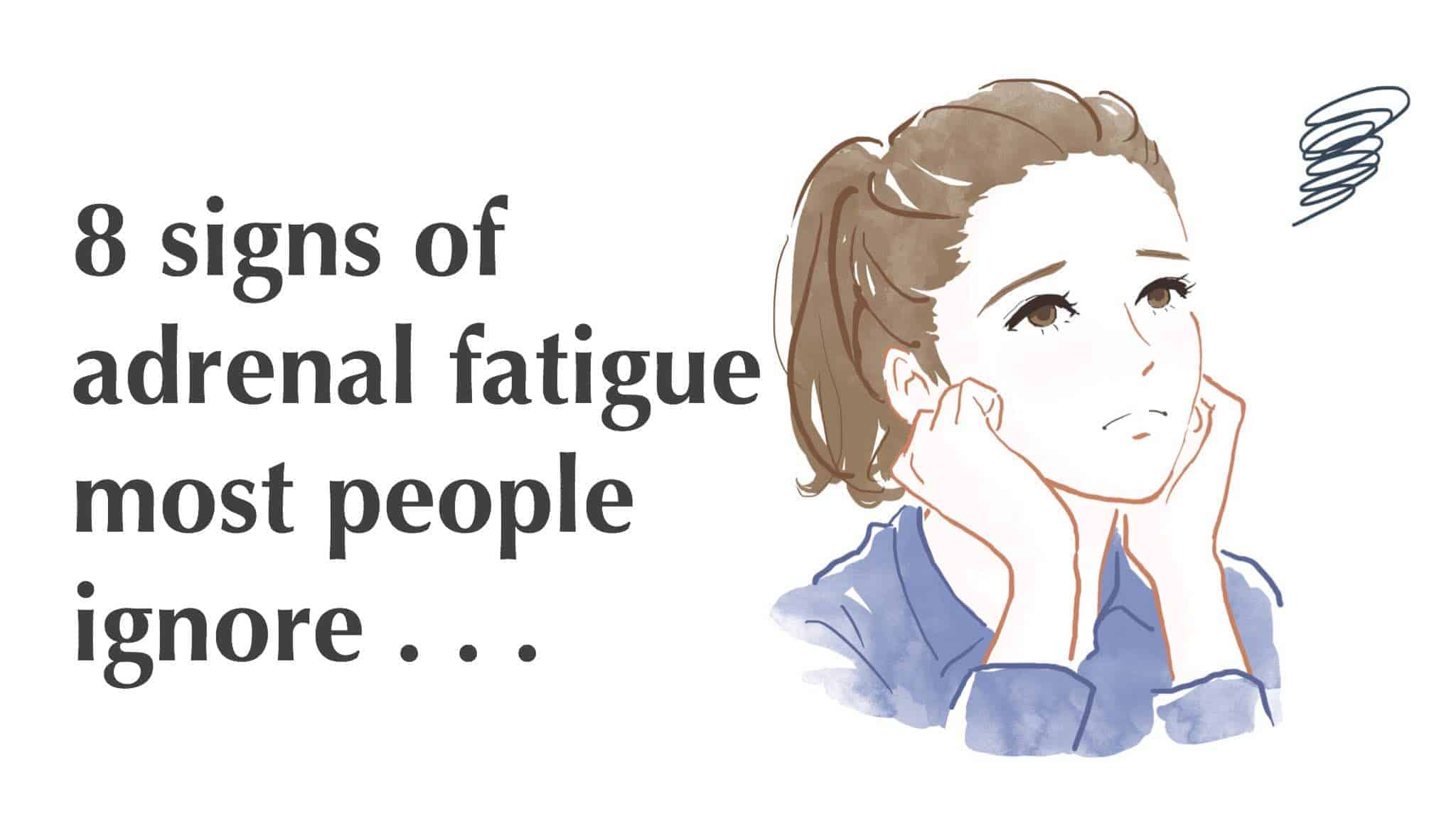The Adrenal Glands
You have two organs, no bigger than the size of a thumb, located just above the kidneys. These tiny things are called the adrenal glands. Despite their diminutive nature, the adrenal glands assist in the production of more than 50 hormones that impact every function of the body.
Among the various functions of the adrenal glands:
- Regulation of blood pressure
- Activating the stress response
- Burning fat and proteins
- Controlling blood sugar
- Coordinating with the HPA axis (more on this later)
- Producing cortisol
This last function, the manufacturing of cortisol – or, rather, the suppressed manufacturing of cortisol – can produce all sorts of health problems.
Various potential health conditions can result from overloaded adrenals. In this article, we’ll list possible signs of adrenal overload and, to wrap things up, the (natural) treatment and prevention of adrenal disorders.
Let’s get to it!
7 signs your adrenal glands are overloaded
“An overstimulation of the adrenal glands (or “adrenals”) by chronic stress over time could lead to an inconsistent level of cortisol (the stress hormone) in the bloodstream…” – draxe.com
1. You always feel tired.
First, chronic fatigue is perhaps the most common symptom of adrenal overload. Fatigued adrenals cannot produce enough cortisol, which is a problem, as cortisol is partly responsible for feelings of alertness. A condition called chronic fatigue syndrome (CFS) mimics many symptoms of adrenal fatigue, which frequently leads to the latter being misdiagnosed as the former.
2. You can’t handle stress.
The inability to handle stress is another very common sign of adrenal overload. Besides cortisol, the adrenals also release the hormones adrenaline and norepinephrine. While these hormones often (rightly) bear the blame for too much stress, they allow the body to channel energy and focus during stressful situations. When our body is deprived of these critical hormones, it has a tough time relieving stress.
3. You drink too much caffeine.
Those with adrenal overload often drink caffeine in excess as a desperate measure to generate energy. This is entirely understandable, but the problem is that caffeine taxes the adrenal glands by activating the fight-or-flight response. While the java may serve as a temporary boost, it’s important to understand that the crash is often much worse. It’s a sharp double-edged sword, in other words.
4. You get sick more often.
Among its many benefits, cortisol helps to keep inflammation in check. As you know, too much inflammation hurts the immune system. Tut the problem here is that cortisol – in the later stages of adrenal fatigue – over-aggressively attacks free radicals and other unfamiliar bad guys that it finds. This can cause too much inflammation and, consequently, suppress the immune system. The result? You get sick more often.
5. You have problems falling asleep.
Rapidly transforming into a night owl is not a natural or healthy development. Here again, the cortisol abnormality rears its ugly head. In healthy individuals, cortisol levels are highest during the day and rapidly decline as the day progresses. Those with adrenal fatigue may experience more energy during the evening. This can lead to difficulties falling asleep, or even insomnia.
6. You crave salty snacks.
The adrenal glands encompass a cortex that works in cohort with the kidneys to monitor and correct fluid and mineral levels. This cortex produces a steroid that regulates the concentration of sodium in the blood. Depleted adrenal glands cannot produce enough of this steroid, and that is detected by the super-intelligent body. The body will signal to your brain that salt levels are low and that you should eat some salty foods to make up for it. It’s probably not a bad idea, either.
7. You suffer from brain fog.
Your brain cannot function optimally if it lacks the necessary energy. Out of all symptoms of adrenal fatigue, brain fog may just suck the worst. Why? Because literally everything that we do requires a heavy dose of brain activity. When energy is depleted, our brain is lethargic. This leads to lack of focus, memory problems, and poor decision-making.
Prevention and Treatment
As with every other medical condition, preventing adrenal overload through your diet is far easier than treating it. Fortunately, you can do many things to both ward off and fight the disorder. Consider these few:
- Manage your stress: Too much stress results in cortisol deficiency, which is the leading cause of adrenal fatigue. Try stress-relieving activities such as exercise and meditation. Yoga also serves as a great stress-reducer.
- Get some magnesium: Magnesium is one of the best nutrients for adrenal health. 80 percent of Americans are deficient in “Mg” – not a good thing considering that it boosts energy, reduces stress, improves sleep, and also supports the nervous system.
- Increase vitamin C intake: Adrenal overload can adversely affect the immune system, as mentioned. Getting your daily dose of “C” helps to strengthen this system. Try eating some citrus, dark green vegetables, berries, or broccoli.
- Increase vitamin Bs: B vitamins are crucial for adrenal health (and health in general). They fortify the stress response and naturally increase energy levels.
- Limit caffeine: Caffeine, while it can provide a nice temporary boost, activates the fight-or-flight mechanism. As a result, our adrenal glands are taxed further which can make any problem in this area worse. Try substituting a cup or two of java for some herbal tea.
https://youtu.be/lFdcCXmGpy4


















